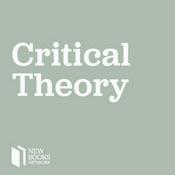27 episodes
HOW Series | The Treacherous Blood-Mixer: Policing White Male Desire under Apartheid
2025/6/30 | 1h 11 mins.Prof Susanne Klausen traces the apartheid state’s obsession with suppressing interracial sex between white men and black women, revealing how Afrikaner nationalism relied on a punitive, puritanical masculinity to preserve its imagined racial order. Drawing from her archival research and critical race theory, Klausen explores how laws such as the Immorality Act and its amendments were used to criminalise not only acts of intimacy but even the suggestion of desire. White men who transgressed were publicly shamed, flogged, imprisoned, and in many cases driven to suicide, punishments meant to reinforce racial loyalty and sexual discipline. The conversation facilitated by Dr Anell Daries explores the contradictions of white masculinity, shame, and the limits of state power in regulating intimacy.
SUSANNE M. KLAUSEN
Susanne M. Klausen is the Julia Gregg Brill Professor of Women’s, Gender, and Sexuality Studies at The Pennsylvania State University. Her main areas of research are the history of fertility politics in modern South Africa, nationalism and sexuality, and transnational movements for reproductive justice. She is the author of Race, Maternity, and the Politics of Birth Control in South Africa, 1910-1939 (Palgrave Macmillan, 2004) and Abortion Under Apartheid: Nationalism, Sexuality, and Women’s Reproductive Rights in South Africa (Oxford University Press, 2015) that won the Women’s History Prize awarded by the Canadian Committee on Women’s History (2016) and the Joel Gregory Prize awarded by the Canadian Association of African Studies (2016). Prof Klausen has published articles in a range of scholarly journals and is currently writing a monograph on the criminalization of interracial heterosex in South Africa during apartheid.- Dr Azille Coetzee speaks with remarkable vulnerability and intellectual clarity about the intersections of race, gender, and sexuality within white Afrikaner identity. Drawing on personal memoir and theoretical inquiry, she examines how the apartheid regime not only demanded political loyalty but also shaped affective orientations, who white women were expected to love, obey, and fear. Through reflections on feminist genealogy, security logics in suburban life, and the haunting story of white women shipwrecked on the Pondoland coast who chose to remain, Coetzee pushes us to imagine lives no longer organised around whiteness. In conversation with Dr Anell Daries, she explores the emotional grip of inherited power and the possibility of desiring otherwise.
AZILLE COETZEE
Azille Coetzee is a writer and a research fellow at Stellenbosch University. In her work she explores the relationship between gender and race in colonial logic, and the role of gender liberation in the project of decolonisation. Her research is published in various international feminist journals, like Hypatia, Feminist Review, and the European Journal of Women’s Studies, and she is the writer of the academic monograph Desire at the End of the White Line: Notes on the Decolonisation of White Afrikaner Femininity (2025, UKZN University Press). HOW Series | Ordinary Whites in Apartheid Society: Social Histories of Accommodation
2025/6/06 | 1h 21 mins.In this episode, Prof Neil Roos discusses how whiteness operated not only through state violence but also via the bureaucratic disciplining of the white working class. Drawing on archival material and personal memory, he illuminates how apartheid’s structures absorbed and managed misfit white bodies, from the expansion of the civil service to the little-known ‘work colonies’ where white men deemed deviant were reformed through labour therapy. Through exchanges with Dr Anell Daries and the audience, Prof Roos grapples with the psychological and generational complexities of complicity. He underscores that the task of history is not only to record the past but to provide moral and political off-ramps—ways to imagine futures beyond the prison of whiteness.
NEIL ROOS
Neil Roos is Dean of the Faculty of Social Sciences and Humanities at the University of Fort Hare. He is also one of the lead implementers of the South African Department of Higher Education and Training’s national collaborative Future Professors Programme (FPP). He writes on histories of race, and his recent research has focused on the historical, moral and political dimensions of white everyday life in apartheid South Africa. From this body of work, he has published essays in Social History, the Journal of Social History, The Historical Journal and International Review of Social History. Roos is also interested in historiography and theory, especially the theoretical moorings of a post-Marxist, left wing social history.- This episode delves into the racialised logic of physical education in twentieth-century South Africa and its entanglement with whiteness, nationalism and citizenship. Dr Anell Stacey Daries examines the history of the Physical Training Battalion (PTB), a state-led initiative aimed at rehabilitating impoverished white boys and men through militarised physical and moral training. Drawing on archival material and historical analysis, she explores how ideals of whiteness were inscribed onto the body through physical education, creating a template for the ideal citizen and reinforcing social separation and racial hierarchies. The conversation further reflects on the legacy of these practices and their continued resonance in institutions and masculinities today.
ANELL STACEY DARIES
Dr Anell Stacey Daries is an NIHSS/SU Prestigious Postdoctoral Fellow at the Centre for the Study of the Afterlife of Violence and the Reparative Quest (AVReQ), Stellenbosch University. Her research explores the origins, trajectories, and social implications of sciences to do with the human body within the context of South African pedagogical histories. As an extension of her interests in the histories of education in South Africa, her research seeks to explore how notions of citizenship have been constituted and reinforced by educational institutions. Apart from her ongoing research interest, Dr Daries is the postgraduate programmes convenor at AVReQ and has experience as a lecturer, academic administrator and mentor. Through her role, she seeks to facilitate innovative ways of student engagement that foreground the student in the knowledge-building process. - In this powerful and unflinching lecture, Prof Joel Modiri challenges us to reckon with South Africa’s unfinished liberation and the symbolic transformation that has failed to deliver substantive justice. Drawing on the life and legacy of Steve Biko, Modiri frames his argument around three “deaths” of Biko, his physical death under apartheid, the juridical death through post-apartheid legal compromise, and the ongoing erasure of Biko’s radical vision in the present. Modiri’s address traverses’ law, philosophy, politics, and history, offering a sobering account of post-1994 South Africa and a call for the radical reimagining of justice, belonging, and historical redress.
Professor Joel Modiri
Joel M Modiri is the acting Deputy Dean: Teaching and Learning and Head of the Department of Jurisprudence in the Faculty of Law, University of Pretoria. He holds the degrees LLB cum laude (Pret) and PhD (Pret). His PhD thesis was entitled “The Jurisprudence of Steve Biko: A Study in Race, Law and Power in the ‘Afterlife’ of Colonial-apartheid.” His research and teaching interests are located in the broad field of jurisprudence and relate to critical race theory, Black political thought and African philosophy. His current projects intersect under two umbrellas rooted in the ethics and politics of the global Black radical tradition: Azanian critical theory and constitutional abolitionism. He was recently appointed as a United Nations Independent Eminent Expert in the area of race and racial discrimination.
More Science podcasts
Trending Science podcasts
About AVReQ The Podcast
This podcast aims to bring conceptual clarity to the concept of violence and its consequences in the lives of victim and survivor groups on the one hand, and perpetrators and their descendants on the other.
Podcast websiteListen to AVReQ The Podcast, StarTalk Radio and many other podcasts from around the world with the radio.net app

Get the free radio.net app
- Stations and podcasts to bookmark
- Stream via Wi-Fi or Bluetooth
- Supports Carplay & Android Auto
- Many other app features
Get the free radio.net app
- Stations and podcasts to bookmark
- Stream via Wi-Fi or Bluetooth
- Supports Carplay & Android Auto
- Many other app features


AVReQ The Podcast
Scan code,
download the app,
start listening.
download the app,
start listening.































